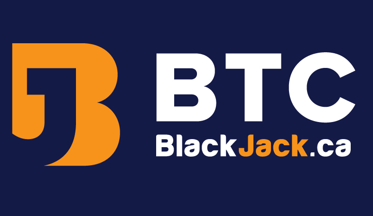Bitcoin by Province – Legality and Ease of Crypto Trading across Canada

You can get your hands on Bitcoin from pretty much anywhere on the planet. So long as you have an internet connection and a viable means of acquisition (bank account, credit card, CEX account, mining equipment, etc.), Bitcoin is always at your fingertips. It’s the range of viable means that tends to change form one location to the next. Even here in Canada, the province in which you reside impacts how you’re able to acquire Bitcoin and altcoins.
Of the thirteen provinces and territories, twelve have similar laws pertaining to digital tokens. And then there’s Ontario. If you follow relevant news, you know that over the years, Ontario has been a stickler for taxable risk. The government is still trying to open a competitive online gambling market; an endeavor some say could bring in up to a billion tax dollars a year. Now, they’re making sure to capitalize on as many crypto investment dollars as possible.
But I’m getting ahead of myself…
The main reason I’m writing this today is because we (the team behind BTC Blackjack) love the Binance Exchange. It’s one of the best global DEX platforms on the market. You can trade pretty much anything on Binance. But you can’t do it if you live in Ontario. Anywhere else, yes! Just not Ontario. We’ll explain why, but you have to udnerstand a few things first, starting with…
Canada Currency Law says Crypto is an Asset, not Money
The Canadian federal government says digital currencies like Bitcoin are legal assets. However, they are not legal tender. According to the Currency Act, only coins minted by the Royal Canadian Mint, and notes issued by the Bank of Canada, are legal tender. Crypto currency is not legal tender, but rather a digital asset or commodity.
So, long story short, you can’t spend crypto the way you would cash (fiat) money. You can’t pay your bills or taxes with it. However, you can buy it, sell it, and trade it, just as you would any other commodity on an exchange. You may even be able to barter for goods and services with it. But it is not money.
With that said, our story continues on a provincial scale. Like so many legal matters in Canada, provinces are able to regulate crypto as they please. However, they must build those regulations upon the foundation of Canada’s federal laws. Which brings us to…
CSA & IIROC Guidance on Crypto Trading Platforms
In March of 2021, the Canadian Securities Administrators (CSA) and Investment Industry Regulatory Organization of Canada (IIROC) put their heads together to publish a notification detailing their guidance as to how securities legislation impacts Crypto Asset Trading Platforms (CTPs).
This highly inclusive Joint CSA/IIROC Staff Notice states that any CTP that facilitates the trading of Securities Tokens (“crypto assets that are securities“) or Crypto Contracts (“instruments or contracts involving crypto assets“) requires that the CTP do one of the following; a) register with the appropriate securities administration(s); or b) apply for and receive an exemption from registration.
Interestingly, these federal guidelines provide the “nascent” crypto dealer marketplace with an “interim” clause. It basically states that, because the industry is so new, CTPs can test the waters before going through the full process of registration. They must show preliminary interest in registration, but do not have to be fully registered before launching their services.
This is where the threads begin to weave in different directions among the provinces of Canada.
Laws of Trading Bitcoin by Province
Let’s start by taking a look at the Bitcoin / Altcoin trading models widely (and legally) available in the rest of Canada. Then we’ll compare these to the more recent laws imposed by the Ontario Securities Commission.
Legality and Ease of Crypto Trading in Canada (Outside Ontario)
The following information (at time of writing) applies to the provinces and territories of:
Alberta, British Columbia, Manitoba, New Brunswick, Newfoundland and Labrador, Northwest Territories, Nova Scotia, Nunavut, Prince Edward Island, Quebec, Saskatchewan, and The Yukon (i.e. everywhere except Ontario).
Any CTP that offers its services to the residents of the above locations has just enough leeway to avoid securities registration; at least for now. As we’ve seen in other risk-savvy, internet-based markets (e.g. online gambling), these provinces have little or no ambition to thwart offshore companies from accessing their markets. Or, perhaps it’s just confidence they lack?
In any regard, these parts of Canada do not seem to take much notice of what CTPs are active in their market. If the company has offices within its borders, registration and regulation is paramount. Otherwise, they slap a warning sticker on it and tell the public to be mindful.
Much Stricter Laws for Crypto Trading in Ontario
The government of Ontario took the CSA / IIROC Joint Staff Notice much more seriously. Ontario legislation takes note of the federal guidelines, expanding into full regulatory action. Since the publication of that notice on March 29, 2021, the Ontario Securities Commission (OSC) has been issuing allegations and/or sanctions against a plethora of CTPs.
Ontario is making sure that each and every CTP that offers its services to residents of the province is either a registrant of the OSC, or applicably exempt from registering. Any exchange that wants to do business in Ontario must register or file exemption. In this way, the province gets each and every tax dollar it has coming. At the same time, Ontarians are unable to conduct anonymous Bitcoin trading.
Terms of OSC registration state that the company must maintain a verifiable record of all accounts. Anyone who uses the service must sign up an account and verify their identity. Once again, the great province of Ontario ensures every possible tax dollar is in collection, from the CTP, as well as its local clientele.
Binance Avoid Sanctions, Eliminates Accounts in Ontario
Binance was not among the ever-growing list of companies under scrutiny of the OSC. It wasn’t not because the OSC wasn’t interested in going after Binance. The securities administrators did try. But Binance took the initiative to retreat from the Ontario market before the OSC could officially act.
Facing the threat of regulatory sanctions, Binance left Ontario behind in June 2021. The company updated its terms of use, deeming Ontario a “restricted jurisdiction”. As such, services to Ontario were immediately cut off. The new terms revealed Binance’s would “take immediate measures to close out all active positions by December 31, 2021.”
Current Crypto Trading Platforms Legal in Ontario
While users anywhere else in Canada are welcome to trade on Binance, residents of Ontario are not. Fortunately, there are other respectable trading platforms that legally serve Ontario (begrudgingly, no doubt). Registered trading platforms include:
